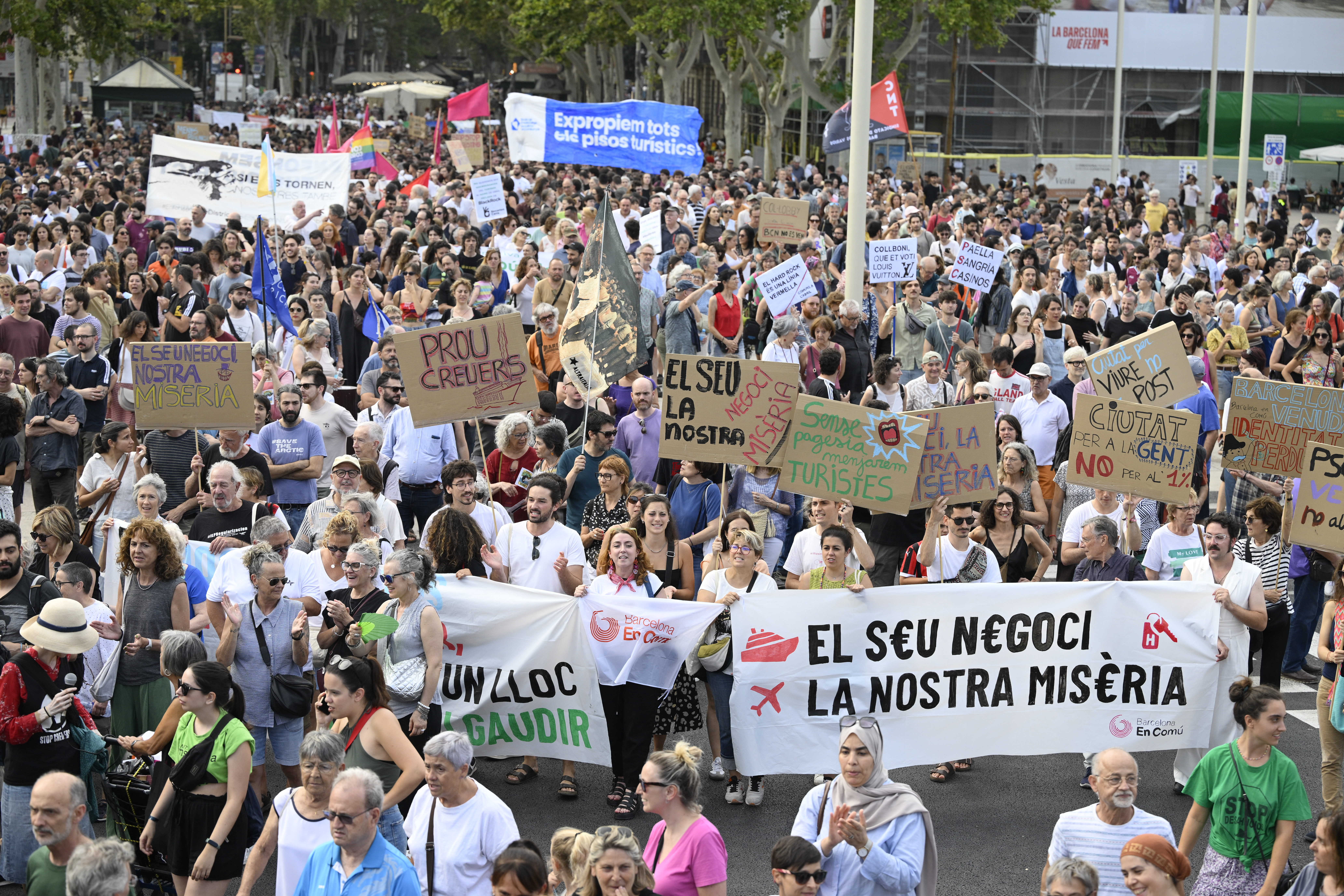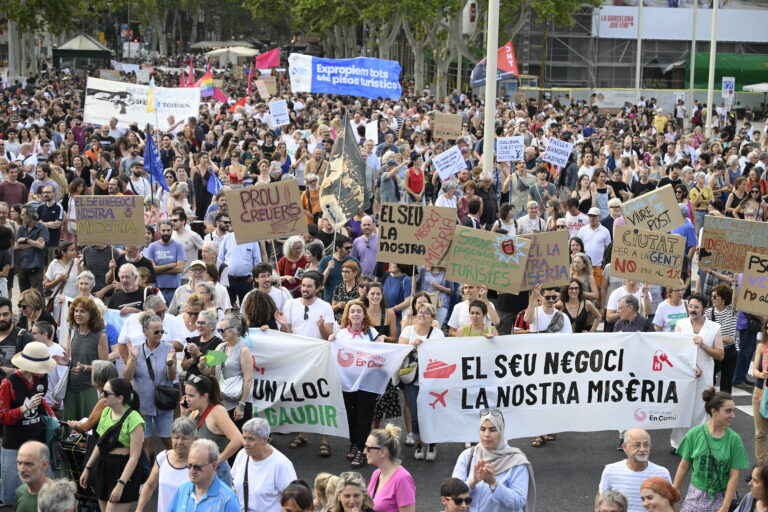
Protesters march against mass tourism on Las Ramblas in Barcelona on July 6, 2024. Spain, the world’s second most tourist-intensive country, has seen an increase in anti-mass tourism protests in recent months. AFP
BARCELONA — Thousands of protesters marched in Barcelona on Saturday to denounce mass tourism and its impact on Spain’s most tourist-rich city, the latest in a series of such demonstrations across the country.
Police said around 2,800 people marched through Barcelona’s waterfront under the slogan “Enough is enough! Put limits on tourism” and demanded a new economic model that would reduce the millions of tourists who visit each year.
“I’m not against tourism, but in Barcelona, too many tourists are making the city unlivable,” said Jordi Guiu, a 70-year-old sociologist.
Read: Mass protests in Canary Islands denounce overtourism
Protesters carried banners that read “Less tourists now!” and chanted slogans such as “Tourists leave our area”, before stopping in front of a hotel to shock visitors.
House prices in Barcelona have risen 68 percent over the past decade, local authorities say, one of the campaign’s main issues, along with the impact of tourism on local commerce and working conditions in the city of 1.6 million people.
“Local shops are closing to make way for others that don’t serve the needs of the neighborhood. People can’t pay the rent,” said Isa Miralles, a 35-year-old musician who lives in the Barceloneta district.
Read: Overcrowded with tourists, Europe’s iconic churches struggle to cope with both worship and tourism
The northeastern coastal city, home to world-famous tourist sites such as the Sagrada Família, welcomed more than 12 million tourists last year, according to local authorities.
To combat the “negative effects of mass tourism”, the city council, led by Socialist politician Jaume Corboni, announced 10 days ago that apartment rentals to tourists – there are currently more than 10,000 – would be banned by 2028 and returned to the local housing market.
The announcement could lead to a legal battle, with tourist apartment associations opposing it, saying it would only stimulate the black market.
The protests in Barcelona came after similar demonstrations were held in tourist destinations such as Malaga, Palma de Mallorca and the Canary Islands.
Spain, the second most visited country after France, is set to receive 85 million foreign tourists in 2023, up 18.7 percent from the previous year, according to the National Institute of Statistics.
The region of Catalonia, with its capital Barcelona, received the most tourists with 18 million, followed by the Balearic Islands (14.4 million) and the Canary Islands (13.9 million).

